Inverted Perspective
by John Zedolik
Tree reaches to grasp the sky
with angled talons, while its roots—
fierce—wing through the soil
that supports the pressure and weight
upon that nest of blue or rain,
under which leaves, buds, and fruit
may bloom then drop, dying to more earth
that will support the chance of flight
upon seasons of current and clime
though not of song, which, buried
in the rich, deep dirt that douses notes,
may only induce the tremor of a lone green blade.
Full Time
The streets of Tarquinia are sparse
and even more so where the town
ends at weathered walls and drops
into steep, forested scarp,
So reaching the limit, it is time
to wend out of these old-blocked
confines into fields that undulate
like Van Gogh’s
Wheat Fields after the Rain (The Plain of Auvers)
but more parched, old gold on this peninsula
farther south though near the sea
Le domeniche sono vuote,
Ma questa è una buona cosa
*
The way winds like a long wavelength
to tombs named for the painted
leopards, augurs, bulls
—as D.H. Lawrence described
in his literate guide to Etruscan places—
and steps down to the depth where progress ceases
at Plexiglas, younger guardian of those fragile
beasts and men
to step up again to another until all resting places
are taken in
*
And some day west across the ocean
alone atop a bicycle on the South Side
ascending the thickly-housed slopes
where
Sundays are empty,
and that is a good thing
to pause on the incline and shake
for a gentle moment a once tended tree
whose green apples still draw the birds
the augurs—like those in the pigment of millennia—
might study in flight
to know the future, which lingers
even until and after the tending of orchards
that still blossom and burgeon into fruit.
Work Ready
Mr. Konipki kept O’Connor
in the small, glassed-in classroom
that muffled the kid-industrial clangs,
with its high tables and chairs
of matching, creaking height
until he could do his fractions,
while we were released into the forges
of the shop where we would toss
pennies and express our amusement
as they heated Lincoln to a glow.
We might have melted pens as well
while O’Connor sat in a high chair,
Konipki red-faced (rumored to enjoy
his immoderate drop) and white-fingered
from the endless chalk nubbed to his cropped
nails in repeated blackboard scrape.
I don’t remember if O’Connor (in five
years, reported to have blown off two-fifths
of his right-hand fingers, firework-foolish)
made it out while we—competent crunchers
of numerators, denominators, true—worked
the alloy of adolescence in the flames
and coals with few useful implements twisted
and hammered to show and ever fewer goals.
Pons Modestvs
I ask only for a hand at the end,
a last bridge to the living,
the pulse of blood under skin
at ninety-eight degrees
and the support of carpals
and their meta kin, firmer
than those craft Xerxes and Caesar
lashed ’cross Hellespont and Rhine,
respectively, though of similar
spring but much less pride and durance,
just a wisp of a warm strand before my struts,
beams slacken, grow cold and still
—withdraw across the gulf to a shore
no flesh-heat will ever reach.
BIO
For thirteen years John Zedolik taught English and Latin in a private school. Eventually, he wrote a dissertation that focused on the pragmatic comedy of the Canterbury Tales, thereby completing a Ph.D. in English. For the past four years, he has been an adjunct instructor at a number of universities in and around Pittsburgh. He has published poems in such journals as Aries, The Bangalore Review (IND), Commonweal, Orbis (UK), Paperplates (CAN), Poem, Pulsar Poetry Webzine (UK), Poetry Salzburg Review (AUT), Third Wednesday, Transom, and in the Pittsburgh Post-Gazette. He recently published a full-length collection, Salient Points and Sharp Angles (CW Books), which is available on Amazon.



 Casey Killingsworth has been published in The American Journal of Poetry (forthcoming), Common Ground, COG, Two Thirds North, and other journals. He has a book of poems, A Handbook for Water (Cranberry Press, 1995), and a book on the poetry of Langston Hughes, The Black and Blue Collar Blues (VDM, 2008). He graduated from Reed College.
Casey Killingsworth has been published in The American Journal of Poetry (forthcoming), Common Ground, COG, Two Thirds North, and other journals. He has a book of poems, A Handbook for Water (Cranberry Press, 1995), and a book on the poetry of Langston Hughes, The Black and Blue Collar Blues (VDM, 2008). He graduated from Reed College.
 Luis Cuauhtémoc Berriozábal, born in Mexico, lives in Southern California, and works in the mental health field in Los Angeles. His first book of poems, Raw Materials, was published by Pygmy Forest Press. His other poetry books, broadsides, and chapbooks, have been published by Alternating Current Press, Deadbeat Press, Kendra Steiner Editions, New American Imagist, New Polish Beat, Poet’s Democracy, and Ten Pages Press (e-book).
Luis Cuauhtémoc Berriozábal, born in Mexico, lives in Southern California, and works in the mental health field in Los Angeles. His first book of poems, Raw Materials, was published by Pygmy Forest Press. His other poetry books, broadsides, and chapbooks, have been published by Alternating Current Press, Deadbeat Press, Kendra Steiner Editions, New American Imagist, New Polish Beat, Poet’s Democracy, and Ten Pages Press (e-book).
 Nanette Rayman, poetry books: Shana Linda Pretty Pretty, Project: Butterflies, two-time Pushcart nominee, Best of Net, DZANC Best of Web, winner Glass Woman Prize. Publications: The Worcester Review, Sugar House Review (newpages.com), Stirring’s Steamiest Six, gargoyle, Little Rose Magazine, isthmus, Scarlet Leaf Review, Red Wolf Journal, Seventh Wave, The Scarlet Leaf Review.
Nanette Rayman, poetry books: Shana Linda Pretty Pretty, Project: Butterflies, two-time Pushcart nominee, Best of Net, DZANC Best of Web, winner Glass Woman Prize. Publications: The Worcester Review, Sugar House Review (newpages.com), Stirring’s Steamiest Six, gargoyle, Little Rose Magazine, isthmus, Scarlet Leaf Review, Red Wolf Journal, Seventh Wave, The Scarlet Leaf Review.
 Laurinda Lind lives in New York’s North Country. Some poems are in Blue Earth, Dryland, Indefinite Space, New American Writing, and NonBinary Review; also anthologies Visiting Bob [Dylan] (New Rivers) and AFTERMATH (Radix). In 2018, she won the Keats-Shelley adult-poetry prize and the New York State Fair poetry competition.
Laurinda Lind lives in New York’s North Country. Some poems are in Blue Earth, Dryland, Indefinite Space, New American Writing, and NonBinary Review; also anthologies Visiting Bob [Dylan] (New Rivers) and AFTERMATH (Radix). In 2018, she won the Keats-Shelley adult-poetry prize and the New York State Fair poetry competition.
 John Califano grew up in Brooklyn, New York, and lives in Manhattan where he works helping at-risk parolees transition back into the workforce. He’s worked as a writer, actor, visual artist, and musician, and has performed in clubs, art galleries, feature films, and Off-Broadway productions. He recently completed NOTES FROM DOWN UNDER, a collection of poems, and JOHNNY BOY, an autobiographical coming-of-age novel. His work was recently featured in The Broadkill Review and The Willesden Herald’s New Short Stories Series (UK), as well as in Embark, an international literary journal for novelists.
John Califano grew up in Brooklyn, New York, and lives in Manhattan where he works helping at-risk parolees transition back into the workforce. He’s worked as a writer, actor, visual artist, and musician, and has performed in clubs, art galleries, feature films, and Off-Broadway productions. He recently completed NOTES FROM DOWN UNDER, a collection of poems, and JOHNNY BOY, an autobiographical coming-of-age novel. His work was recently featured in The Broadkill Review and The Willesden Herald’s New Short Stories Series (UK), as well as in Embark, an international literary journal for novelists.
 R.T. Castleberry’s work has appeared in Roanoke Review, Santa Fe Literary Review, Pedestal Magazine, Comstock Review, Green Mountains Review, Silk Road and Argestes. Internationally, it has been published in Canada, Wales, Ireland, Scotland, New Zealand and Antarctica. He has poetry in the anthologies: Travois-An Anthology of Texas Poetry, TimeSlice, The Weight of Addition, Anthem: A Tribute to Leonard Cohen, Kind Of A Hurricane: Without Words and Blue Milk’s anthology, Dawn. My chapbook, Arriving At The Riverside, was published by Finishing Line Press in January, 2010. An e-book, Dialogue and Appetite, was published by Right Hand Pointing in May 2011.
R.T. Castleberry’s work has appeared in Roanoke Review, Santa Fe Literary Review, Pedestal Magazine, Comstock Review, Green Mountains Review, Silk Road and Argestes. Internationally, it has been published in Canada, Wales, Ireland, Scotland, New Zealand and Antarctica. He has poetry in the anthologies: Travois-An Anthology of Texas Poetry, TimeSlice, The Weight of Addition, Anthem: A Tribute to Leonard Cohen, Kind Of A Hurricane: Without Words and Blue Milk’s anthology, Dawn. My chapbook, Arriving At The Riverside, was published by Finishing Line Press in January, 2010. An e-book, Dialogue and Appetite, was published by Right Hand Pointing in May 2011.
 Roger Singer has been in private practice for 38 years in upstate New York. He has four children, Abigail, Caleb, Andrew and Philip and seven grandchildren. Dr. Singer has served on multiple committees for the American Chiropractic Association, lecturing at colleges in the United States, Canada and Australia, and has authored over fifty articles for his profession and served as a medical technician during the Vietnam era.
Roger Singer has been in private practice for 38 years in upstate New York. He has four children, Abigail, Caleb, Andrew and Philip and seven grandchildren. Dr. Singer has served on multiple committees for the American Chiropractic Association, lecturing at colleges in the United States, Canada and Australia, and has authored over fifty articles for his profession and served as a medical technician during the Vietnam era.
 Holly Day’s poetry has recently appeared in The Cape Rock, New Ohio Review, and Gargoyle. Her newest poetry collections are A Perfect Day for Semaphore (Finishing Line Press); In This Place, She Is Her Own (Vegetarian Alcoholic Press); A Wall to Protect Your Eyes (Pski’s Porch Publishing); I’m in a Place Where Reason Went Missing (Main Street Rag Publishing Co.); and The Yellow Dot of a Daisy (Alien Buddha Press).
Holly Day’s poetry has recently appeared in The Cape Rock, New Ohio Review, and Gargoyle. Her newest poetry collections are A Perfect Day for Semaphore (Finishing Line Press); In This Place, She Is Her Own (Vegetarian Alcoholic Press); A Wall to Protect Your Eyes (Pski’s Porch Publishing); I’m in a Place Where Reason Went Missing (Main Street Rag Publishing Co.); and The Yellow Dot of a Daisy (Alien Buddha Press).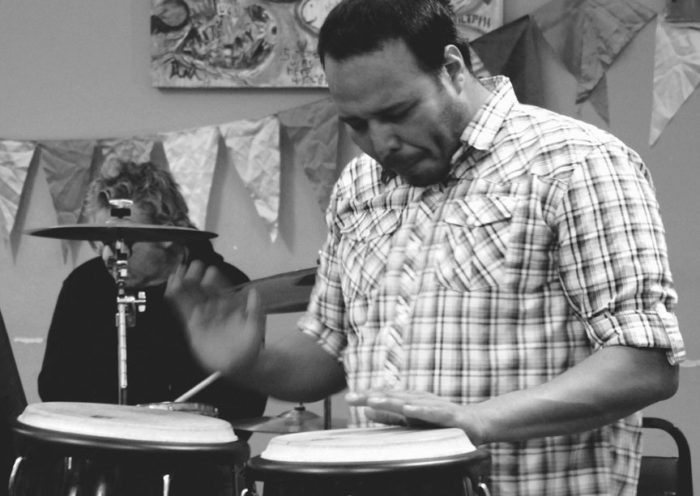
 Marvin Rosel was born in Sonsonate, El Salvador, where he lived until he was 14. His father brought him, along with his brother and sister, to South Gate, CA. He spent several years living in Miami, FL. Marvin arrived to the Skid Row community in November 2017, where he continues to write and live.
Marvin Rosel was born in Sonsonate, El Salvador, where he lived until he was 14. His father brought him, along with his brother and sister, to South Gate, CA. He spent several years living in Miami, FL. Marvin arrived to the Skid Row community in November 2017, where he continues to write and live.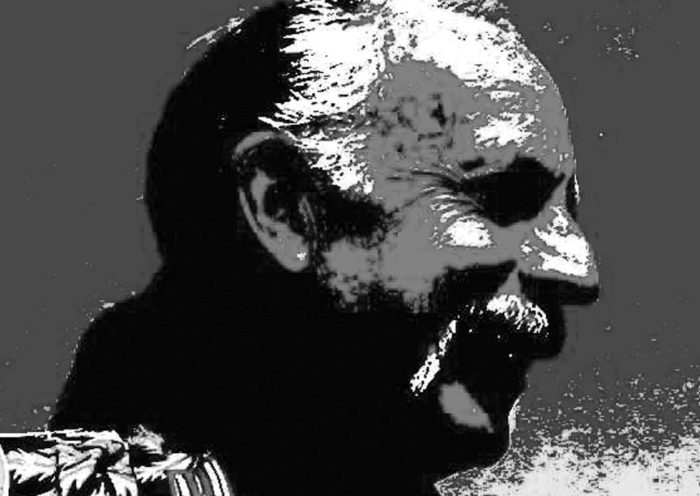
 Guinotte Wise writes and welds steel sculpture on a farm in Resume Speed, Kansas. His short story collection (Night Train, Cold Beer) won publication by a university press and enough money to fix the soffits. Four more books since. A 4-time Pushcart nominee, his fiction and poetry have been published in numerous literary journals including Atticus, The MacGuffin, Santa Fe Writers Project, Rattle and The American Journal of Poetry. His wife has an honest job in the city and drives 100 miles a day to keep it. Some work is at
Guinotte Wise writes and welds steel sculpture on a farm in Resume Speed, Kansas. His short story collection (Night Train, Cold Beer) won publication by a university press and enough money to fix the soffits. Four more books since. A 4-time Pushcart nominee, his fiction and poetry have been published in numerous literary journals including Atticus, The MacGuffin, Santa Fe Writers Project, Rattle and The American Journal of Poetry. His wife has an honest job in the city and drives 100 miles a day to keep it. Some work is at 
 Chris Fox is a poet and librarian based out of Greensboro, NC. His work has appeared in numerous journals, including Rosebud, Treehouse Magazine, Lady Churchill’s Rosebud Wristlet, Oddball Magazine and others. His poem “You” was a runner-up for the William Stafford award, and his poem “Scorpions” was nominated for the Rhysling Award. He is currently at work putting the finishing touches on his first chapbook, “Time Travel Love Poems”.
Chris Fox is a poet and librarian based out of Greensboro, NC. His work has appeared in numerous journals, including Rosebud, Treehouse Magazine, Lady Churchill’s Rosebud Wristlet, Oddball Magazine and others. His poem “You” was a runner-up for the William Stafford award, and his poem “Scorpions” was nominated for the Rhysling Award. He is currently at work putting the finishing touches on his first chapbook, “Time Travel Love Poems”.
 Mary Kasimor has been writing poetry for many years. Her recent poetry collections are The Landfill Dancers (BlazeVox Books 2014), Saint Pink (Moria Books 2015), The Prometheus Collage (Locofo Press 2017), and Nature Store (Dancing Girl Press 2017).
Mary Kasimor has been writing poetry for many years. Her recent poetry collections are The Landfill Dancers (BlazeVox Books 2014), Saint Pink (Moria Books 2015), The Prometheus Collage (Locofo Press 2017), and Nature Store (Dancing Girl Press 2017).
 Zach Trebino populates the world with absurdly grotesque performances, videos, and texts. His performances have been seen in cities and truck stops throughout the US (and a few times in Bulgaria and Argentina). His friend Zack Bwaff (
Zach Trebino populates the world with absurdly grotesque performances, videos, and texts. His performances have been seen in cities and truck stops throughout the US (and a few times in Bulgaria and Argentina). His friend Zack Bwaff (
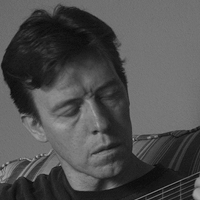 Jared Pearce’s collection, The Annotated Murder of One, was released from Aubade last year (
Jared Pearce’s collection, The Annotated Murder of One, was released from Aubade last year (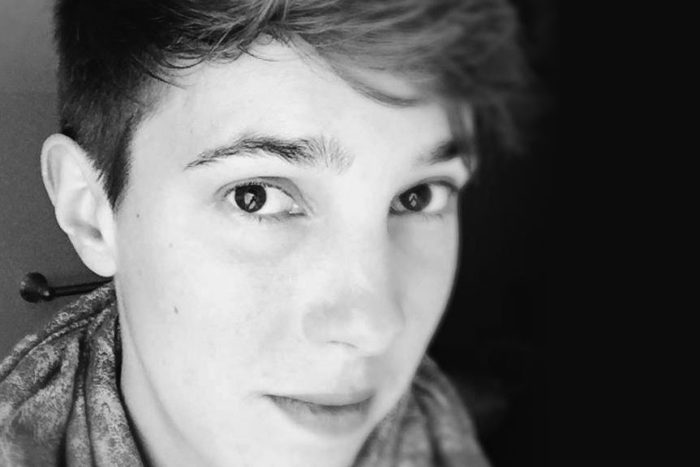
 A.C. O’Dell is a writer and flash poet living in Virginia. She received her B.F.A. from Mars Hill University and her M.F.A. from Regent University. She has two chapbooks, Woman These Are Yours and Slightly Bitter, and has published two zines with watercolor artist Marni Manning: Americana Culture and Inktober. Her piece “The ordinary-ness” was recently published in Blakelight Literary Magazine. One of A.C.’s favorite things to do is run her pop-up poetry booth, where she composes extemporaneous pieces for clients as performance art. It is one of the most beautiful and challenging projects she has ever worked on.
A.C. O’Dell is a writer and flash poet living in Virginia. She received her B.F.A. from Mars Hill University and her M.F.A. from Regent University. She has two chapbooks, Woman These Are Yours and Slightly Bitter, and has published two zines with watercolor artist Marni Manning: Americana Culture and Inktober. Her piece “The ordinary-ness” was recently published in Blakelight Literary Magazine. One of A.C.’s favorite things to do is run her pop-up poetry booth, where she composes extemporaneous pieces for clients as performance art. It is one of the most beautiful and challenging projects she has ever worked on.
 Lauren Sartor has an MFA from Sarah Lawrence College. Her work has appeared in publications, such as Black Fox Literary Review, Broad! Magazine, Calyx Journal, Literary Juice, Easy Street, and The Former People’s Journal. Her work takes an earnest look at the conflicted, and often misrepresented, facets of ordinary livelihood. She is currently a Ph.D. candidate at SUNY Binghamton.
Lauren Sartor has an MFA from Sarah Lawrence College. Her work has appeared in publications, such as Black Fox Literary Review, Broad! Magazine, Calyx Journal, Literary Juice, Easy Street, and The Former People’s Journal. Her work takes an earnest look at the conflicted, and often misrepresented, facets of ordinary livelihood. She is currently a Ph.D. candidate at SUNY Binghamton.
 M. A. Istvan Jr., PhD is a Texas citrus thief. He pinches not just a few grapefruits or oranges here and there. He has coordinated large crews to help him plunder entire acres in the secret of night. Most people stay out of Istvan’s vicinity. His hurried step, fierce expression, and wild hand gestures while speaking (speaking in what is best described as auditory cursive) set off the insanity-detectors ingrained in us by deep history.
M. A. Istvan Jr., PhD is a Texas citrus thief. He pinches not just a few grapefruits or oranges here and there. He has coordinated large crews to help him plunder entire acres in the secret of night. Most people stay out of Istvan’s vicinity. His hurried step, fierce expression, and wild hand gestures while speaking (speaking in what is best described as auditory cursive) set off the insanity-detectors ingrained in us by deep history.
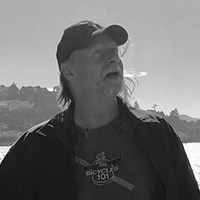 EG Ted Davis is a semi-retired working stiff and poet who resides in Boise, ID with his wife and their two rescue cats. He has various works that have appeared, or will appear, in several online literary journals – both in the US and in the UK.
EG Ted Davis is a semi-retired working stiff and poet who resides in Boise, ID with his wife and their two rescue cats. He has various works that have appeared, or will appear, in several online literary journals – both in the US and in the UK.
 ADRIAN CREŢU is the author of the poetry book Orice om este un cântec fără rimă (Every human is a song without a rhyme), Junimea Publishing House, Iaşi, Romania, 2012. He has appeared in anthologies of Romanian modern poetry and participated in artistic residencies in Europe and the USA. From 2000 – present, his poems and articles have been published in: România literară, Tribuna (Cluj), Ateneu (Bacău), Cronica (Iași), Argeș (Pitești), Boema (Galați), Porțile Nordului (Baia Mare), Timpul (Iași), 13Plus (Bacău), Opinia studenţească (Iași), Alchemia (Israel), Ficțiuni.ro, Spații culturale (Râmnicu-Sărat), Constelații diamantine (Craiova), Astra băcăuană, POEZIA (Iași), Columnele vieţii (Bacău), Litera 13 (Brăila), Expres Cultural (Iași).
ADRIAN CREŢU is the author of the poetry book Orice om este un cântec fără rimă (Every human is a song without a rhyme), Junimea Publishing House, Iaşi, Romania, 2012. He has appeared in anthologies of Romanian modern poetry and participated in artistic residencies in Europe and the USA. From 2000 – present, his poems and articles have been published in: România literară, Tribuna (Cluj), Ateneu (Bacău), Cronica (Iași), Argeș (Pitești), Boema (Galați), Porțile Nordului (Baia Mare), Timpul (Iași), 13Plus (Bacău), Opinia studenţească (Iași), Alchemia (Israel), Ficțiuni.ro, Spații culturale (Râmnicu-Sărat), Constelații diamantine (Craiova), Astra băcăuană, POEZIA (Iași), Columnele vieţii (Bacău), Litera 13 (Brăila), Expres Cultural (Iași).











